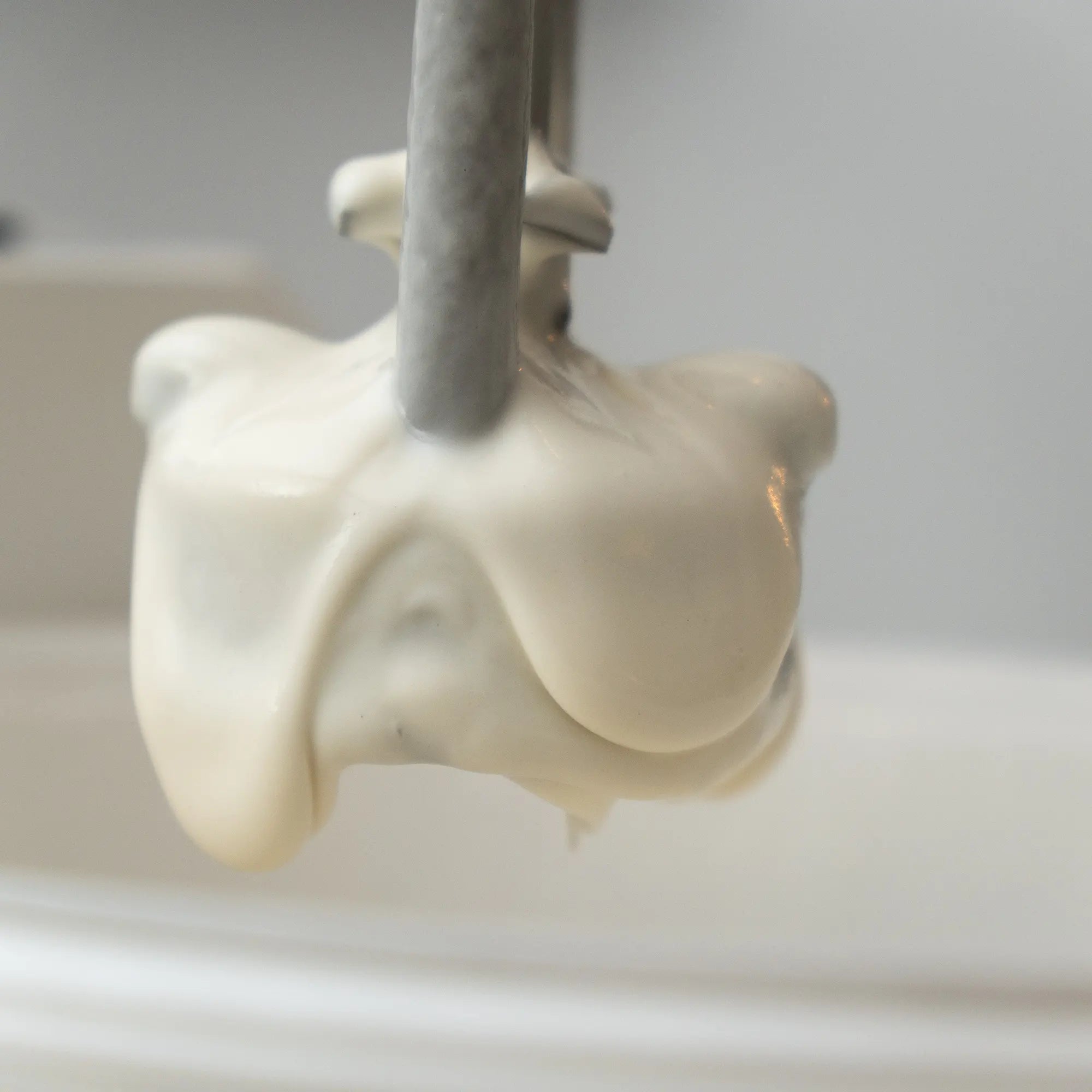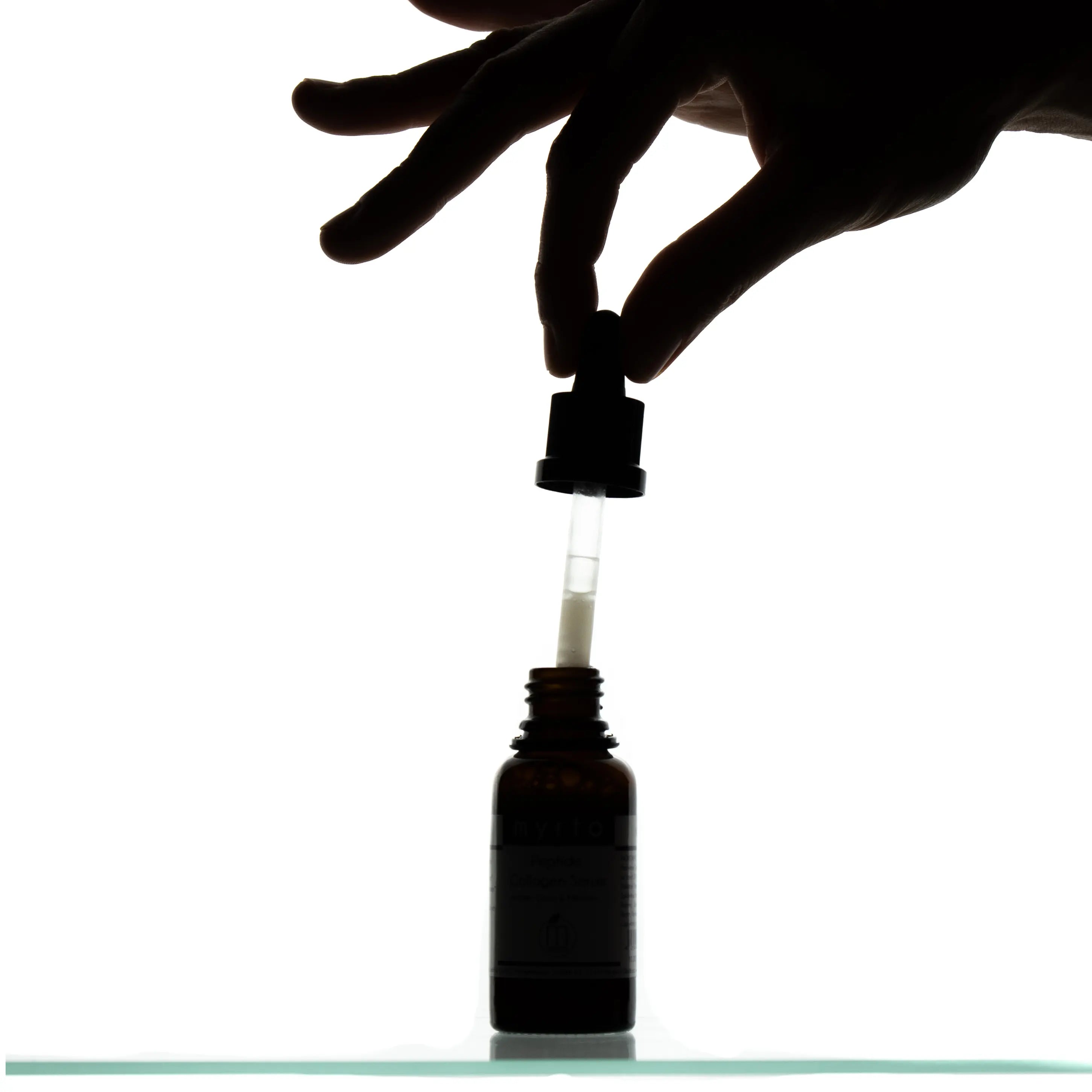
DMS creams – skin-identical care for sensitive skin
DMS creams mimic the skin's natural barrier. Phosphatidylcholine, a skin-identical lipid, builds up the barrier layer, reduces moisture loss, and transports active ingredients deep into the skin. Ideal for sensitive, reddened, or blemish-prone skin—free from alcohol, fragrances, emulsifiers, and preservatives.
What care does sensitive and irritated skin need?
Sensitive, dry, or oily skin with redness, blemishes, or skin conditions places special demands on skincare. It is crucial to provide the skin with skin-like ingredients that naturally form the skin's barrier. These biomimetic substances are particularly easy to integrate, strengthen the protective outer layer, minimize water loss through the skin (TEWL = trans epidermal water loss), and ensure a resilient, balanced complexion.
Strengthen the skin barrier with DMS creams and phosphatidylcholine
The concept of dermatological corneotherapy focuses on restoring and strengthening the skin barrier, which forms the skin's natural protective shield against environmental influences.
Its structure can be compared to a brick wall: Horn cells (corneocytes) form the bricks, while skin lipids such as ceramides, cholesterol, and fatty acids act as the "mortar" and make up approximately 50% of the barrier. Only an intact barrier reliably protects against moisture loss, allergens, bacteria, and irritants.
Phosphatidylcholine as a precursor of ceramides – key building blocks of the skin
Ceramides (from Latin cera = wax) are a group of skin-derived lipids that, along with cholesterol and fatty acids, form the majority of the skin's barrier. They act like a cement substance that holds the horny cells of the uppermost layer of skin together. Without sufficient ceramides, the skin becomes dry, permeable, and prone to redness, irritation, and infection.
Approximately 60% of the skin barrier consists of different types of ceramides. They are produced in the body by phosphatidylcholine (PC) , a natural membrane lipid. PC is the crucial precursor of all ceramides and ensures that the skin produces its own individually tailored ceramide mixture. This keeps the skin supple, resilient, and optimally protected.
Phosphatidylcholine in DMS creams – the basis for a healthy skin barrier
Myrto DMS creams contain hydrogenated phosphatidylcholine . This stabilized form of phosphatidylcholine enables the skin to naturally create the necessary ceramide balance.
- Strengthening the skin barrier
- Minimized water loss through the skin (TEWL)
- Supports collagen formation
- Protection against harmful microorganisms
- Deep-acting transport of other active ingredients for long-lasting effect
What are DMS creams and how do they work?
DMS stands for Derma Membrane Structure . DMS creams mimic the natural skin barrier: They consist of lamellar lipid layers with water-containing substances sandwiched between them. Phosphatidylcholine combines oil- and water-soluble components as a skin-identical "emulsifier." The difference from classic oil-in-water or water-in-oil emulsions is evident in the INCI name, Hydrogenated Phosphatidylcholine .
Skin-identical ingredients in DMS creams with phosphatidylcholine
- Phosphatidylcholine – basic lipid, precursor of all ceramides
- Ceramides – are formed in natural balance by phosphatidylcholine
- Linoleic acid – found in grape seed or argan oil, among others
- Linolenic acid – e.g. in pomegranate seed, evening primrose or hemp oil
- Squalane – skin-like lipid building block (e.g. from amaranth seed oil)
- Beta-glucan – binds moisture, soothes and has an anti-inflammatory effect
Benefits of skin-identical DMS creams for sensitive skin
- Optimized skin compatibility – also suitable for highly sensitive skin, rosacea, neurodermatitis, acne or psoriasis.
- Strengthens the skin barrier – regenerates porous structures, protects against moisture loss.
- Deep action – liposomal encapsulation transports active ingredients into deeper skin layers and extends the duration of action.
- Improved immune protection – allergens, bacteria and irritants are effectively repelled.
- Minimalist formulations – without alcohol, fragrances, common emulsifiers or preservatives.
Frequently asked questions about DMS creams & phosphatidylcholine
What is DMS cream?
DMS stands for Derma Membrane Structure. DMS creams replicate the skin's lamellar lipid architecture, thus supporting the regeneration of the skin barrier—ideal for sensitive, irritated, or blemish-prone skin.
What role does phosphatidylcholine play?
Phosphatidylcholine is a skin-identical membrane lipid. It serves as a precursor to all ceramides, reduces TEWL, improves skin tolerance, and transports active ingredients deeper into the skin via liposomal encapsulation.
What are ceramides – simply explained?
Ceramides are natural skin fats that act like a "glue" between the horny cells. A balanced blend of ceramides maintains the barrier, prevents irritation, and stabilizes the moisture balance.
Who are DMS creams particularly suitable for?
For very sensitive, dry, oily skin and skin prone to redness or blemishes, as well as for rosacea, neurodermatitis, acne or psoriasis.
Are DMS creams free of fragrances and preservatives?
Myrto facial care is fragrance-free, alcohol-free, and does not contain skin-weakening emulsifiers or synthetic preservatives.
Can I combine DMS creams with niacinamide or vitamin C?
Yes. Using phosphatidylcholine as a carrier improves the tolerability and deep penetration of many active ingredients, including niacinamide and stable vitamin C derivatives.
How do I use DMS creams?
Apply a thin layer in the morning and/or evening after gentle cleansing and toning. Follow with UV protection if desired.
Matching DMS facial care from myrto
Skin-identical, fragrance-free formulations – without alcohol, without traditional emulsifiers, without preservatives.
👉 You can find all myrto DMS creams in our shop under face creams






